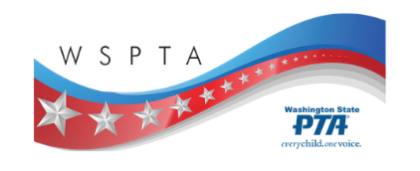 Marie Sullivan, WSPTA Legislative Consultant, shares a look ahead at 2021 and topics that are likely under consideration by the 66th Legislature.
Marie Sullivan, WSPTA Legislative Consultant, shares a look ahead at 2021 and topics that are likely under consideration by the 66th Legislature.
- House and Senate will be holding virtual winter “Assembly Days,” with committee work sessions the week after Thanksgiving. (Note, they already held virtual fall “Assembly Days” in September, but no public comment.)
- Governor’s proposed budgets will be released in mid-December.
- 2021 session is likely virtual or hybrid (limited in person).
- House held a mock virtual session with all 98 members on October 19.
- Both House and Senate leadership are saying they will limit the number of bills and topics under consideration in 2021.
- Both House and Senate are considering maybe once a week committee hearings, maybe longer (3 hours each).
- Senate is considering staggering number of “on floor” members to only 25 at a time, and then only once a week for at least the first five weeks of the session.
- Primary focus is adopting a new two-year spending plan for operations, construction, and transportation budgets.
- Operating budget (closing a $4.4 billion projected shortfall without serious cuts to the safety net and vulnerable populations); economic recovery and stimulus; issues that can’t wait or must be handled (think transportation funding, waivers for seniors graduating, etc.) immediately; and police reform. There is some talk about progressive revenue.
- Capital budget is about $3.8 billion, so still strong.
- Transportation budget is likely in better shape after the decision by the Supreme Court to strike it down. However, it wasn’t on the topic, just the fact that two items were in the title, so I’d expect the issue to be on the ballot again soon.
- Budget writers are meeting internally to discuss how to close the budget gap.
- Largest non-basic education item is LEA – however, that’s a tough one to cut.
- They will be looking at things they can postpone or suspend to reduce the level of cuts.
- Even if they enact new revenue (i.e., taxes), it will take a few years to come in unless they rely on standbys like sin taxes (tobacco, alcohol, marijuana), changes to sales taxes, or suspending tax credits or exemptions.
- I’m hearing they will be looking at what are called “caseload forecasts” – so how many students are enrolled in school, for example, and readjusting the supplemental budget and the 2021-23 budget accordingly. For example, the impact is that if enrollment is lower than was projected last year when the budget was passed, the funding will be decreased – when fixed costs haven’t changed. Any money to bring the funding back to current budgeted levels will be considered “additions.” And that’s why your protection of K-12 funding is so important.
- On K-12 education policy, legislators are considering:
- Some type of hold harmless/fix for transportation funding formula for this school year, possible next school year.
- Weighing how to handle enrollment declines (shows up in the caseload forecast, which they use for budgeting purposes).
- Giving districts flexibility in the use of categorical funds.
- Modifying graduation pathways (per State Board of Education recommendations), including granting SBE authority to offer seniors waivers in times of emergencies or natural disasters.
- Addressing the 4% experience factor funding – looking at options to create opportunities for more districts.
For the issues and resolutions you have just adopted, I would expect a lot of alignment with other education state associations and state agencies like OSPI and the State Board of Education, as well as efforts on preventing gun violence, climate change, and addressing anti-racism and inequities across the board.
This year, stories, social media, and many voices are going to be critical. It’s a huge opportunity.
So what are some things you can do to prepare for a virtual or mostly virtual session?
- Gather the stories at your school about things like:
- The number of counselors, nurses, and so on related to student mental health.
- What the digital divide looks like in your school and district – have they participated in the state speed test and mapping?
- What is the district doing about transportation? Are they transporting meals, homework packets, serving as hotspots, transporting kids?
- What about the enrollment. What’s happening in the district and the school? Track this as we head towards January.
- What are schools doing to address the mental health of students? What about learning gaps – what do they need to help students catch up?
- Find out what your breakdown of students looks like compared to those participating in highly capable programs.
- Friend your legislators on FB and make sure you have their names, emails, and phone numbers handy – social media will be important this year.
- Invite your legislators to attend a PTA or Council meeting virtually and speak with you.
- Get involved at your local level so school board members and superintendents hear your voice.
- And, of course, stay involved. We are looking for people who are willing to testify, and it likely will be via Zoom this year, so please, let us know if you’re interested and what your passions or expertise is so we know how to best align those interests with bills or budget requests.